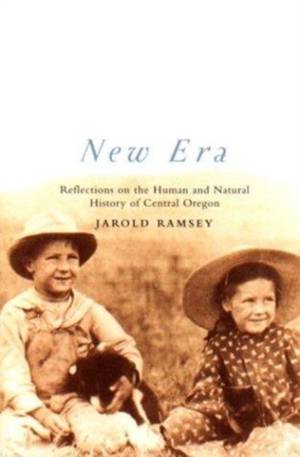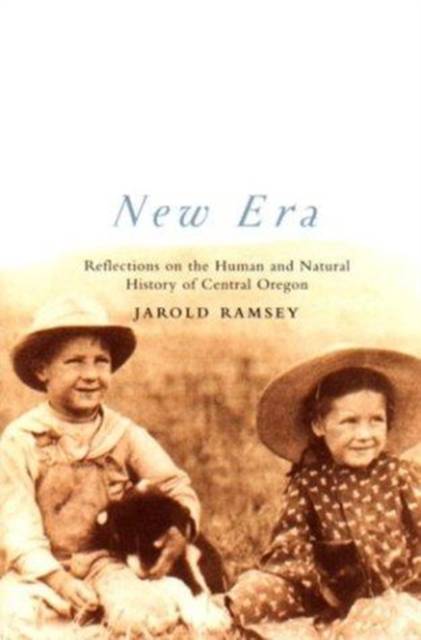
- Retrait gratuit dans votre magasin Club
- 7.000.000 titres dans notre catalogue
- Payer en toute sécurité
- Toujours un magasin près de chez vous
- Retrait gratuit dans votre magasin Club
- 7.000.0000 titres dans notre catalogue
- Payer en toute sécurité
- Toujours un magasin près de chez vous
New Era
Reflections on the Human and Natural History of Central Oregon
Jarold Ramsey
Livre broché | Anglais
22,45 €
+ 44 points
Description
New Era is a graceful and literate collection of personal essays on the human and natural history of the Central Oregon high desert, focusing on what happened to the people and the land of this region during and after the homesteading era of 1900 to 1920. It is a book full of stories--about early Indian/Anglo connections, about the ghost town of Opal City, about homestead ranches and the families who struggled to make their lives there. Each chapter offers a new perspective on the interplay of human and natural history in a challenging time and place. Although Ramsey's focus is intensely local, he explores how these local details have larger Western and American meanings, too. In his introduction, Ramsey writes that the title of his book comes from the name of our little country school, and if it catches a sense of the indomitable optimism of the homesteaders who established it for their children, I also want it so suggest my concern ... with changes in the land, and with what can get thrown aside and lost in the name of newness and progress. The stories gathered in New Era capture these changing and changed lives and landscapes. Jarold Ramsey was born in Central Oregon and grew up on his family's ranch there. He left the ranch to attend college, and became an award-winning essayist and poet, as well as a published playwright and a respected authority on traditional American Indian literature. New Era will appeal to a wide range of readers beyond those interested in the Oregon high desert country, especially those who value story-telling and the literature of place.
Spécifications
Parties prenantes
- Auteur(s) :
- Editeur:
Contenu
- Nombre de pages :
- 144
- Langue:
- Anglais
Caractéristiques
- EAN:
- 9780870715570
- Date de parution :
- 01-10-03
- Format:
- Livre broché
- Format numérique:
- Trade paperback (VS)
- Dimensions :
- 148 mm x 234 mm
- Poids :
- 231 g

Les avis
Nous publions uniquement les avis qui respectent les conditions requises. Consultez nos conditions pour les avis.






